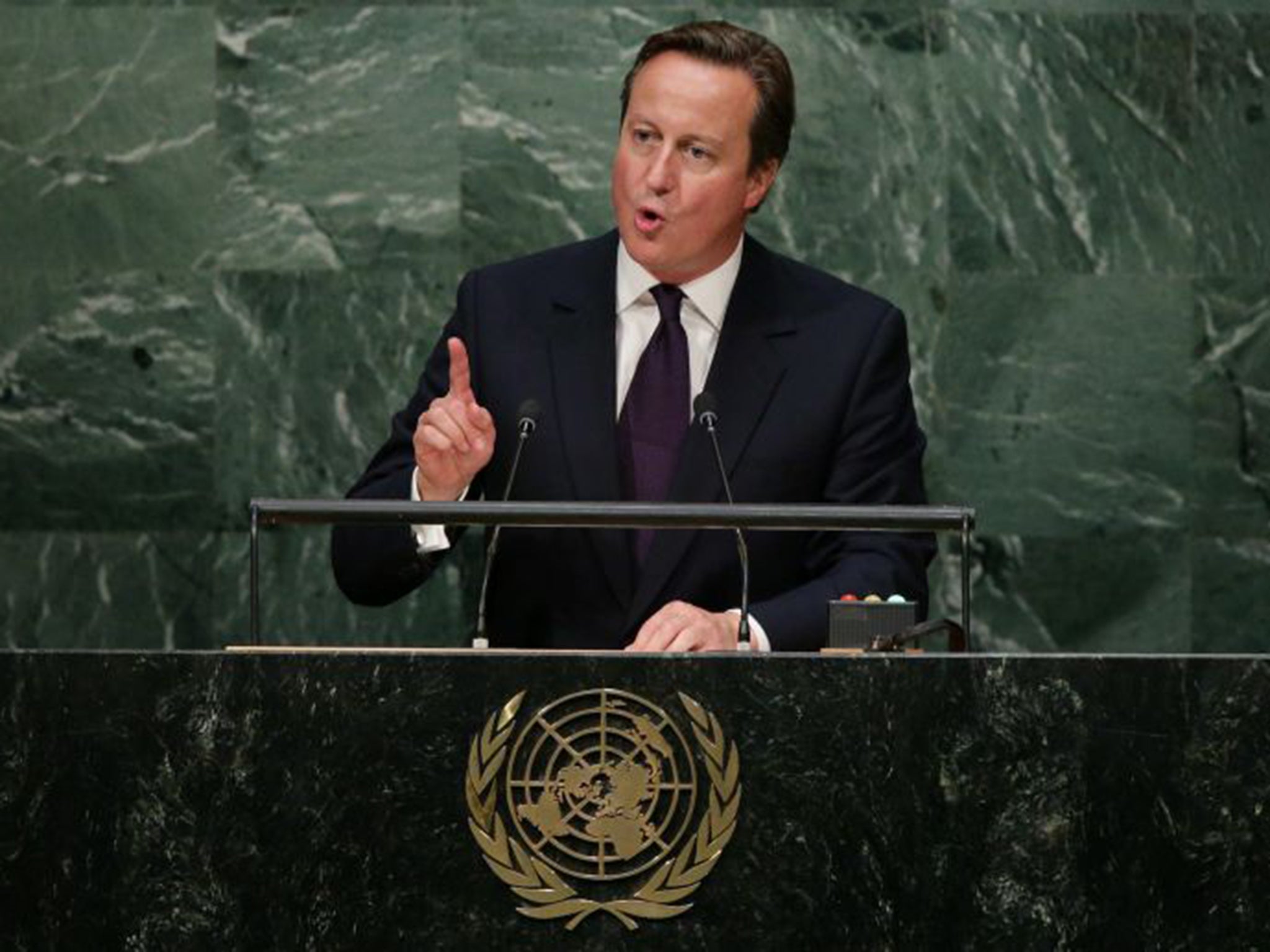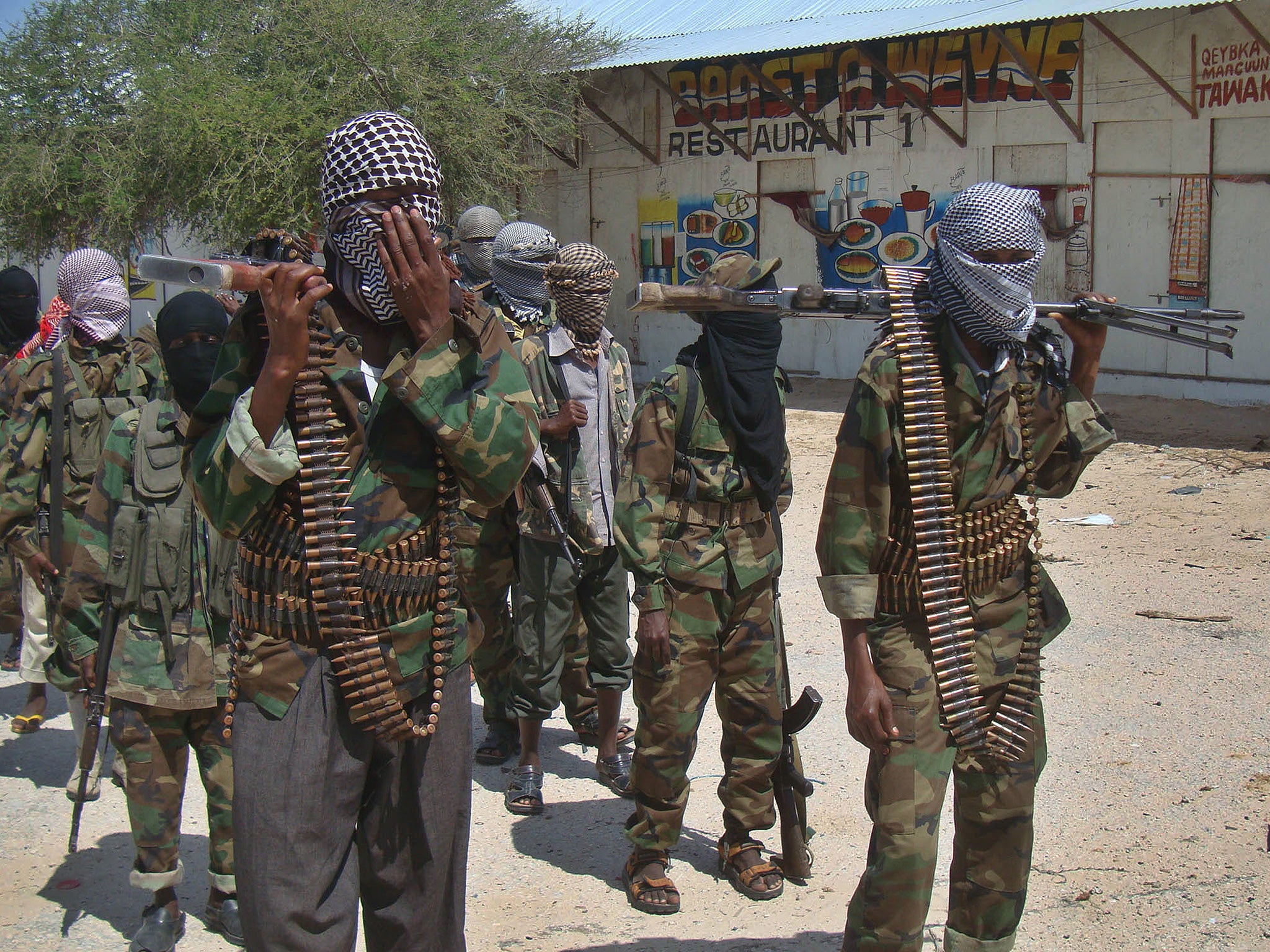British troops to join peacekeeping force fighting militants in Somalia
Mr Cameron told reporters that it was in the UK's national interest to use its resources and expertise to improve existing efforts

Your support helps us to tell the story
From reproductive rights to climate change to Big Tech, The Independent is on the ground when the story is developing. Whether it's investigating the financials of Elon Musk's pro-Trump PAC or producing our latest documentary, 'The A Word', which shines a light on the American women fighting for reproductive rights, we know how important it is to parse out the facts from the messaging.
At such a critical moment in US history, we need reporters on the ground. Your donation allows us to keep sending journalists to speak to both sides of the story.
The Independent is trusted by Americans across the entire political spectrum. And unlike many other quality news outlets, we choose not to lock Americans out of our reporting and analysis with paywalls. We believe quality journalism should be available to everyone, paid for by those who can afford it.
Your support makes all the difference.Dozens of British troops are to be deployed to Somalia as part of peacekeeping efforts to counter Islamic militants, David Cameron has announced.
Up to 70 armed forces personnel will be sent to bolster a United Nations-backed mission to push back against al Shabab extremists.
Another 250-300 could also be deployed in troubled South Sudan in a twin approach the Prime Minister said could help curb the flow of migrants towards Europe.
But he sought to reassure the public that “all the right force protection arrangements” would be put in place to minimise the risk of harm.

Details of the UK contribution were revealed as the Prime Minister prepared to attend a summit at the United Nations General Assembly in New York designed to bolster international support for peacekeeping missions across the globe.
It is the first time the UK - which contributes around £323 million a year to the UN peacekeeping budget and has done work on the ground in Somalia - has formally joined the international contingent backing the long-running push by African Union troops against al Shabab.
Smaller numbers have been involved in similar work after Mr Cameron made Somalia a priority case - hosting two summits in London aimed at filling the political void exploited by the extremists, who have been pushed out of around three-quarters of the territory they controlled over the last couple of years.
British forces will provide combat training and medical, logistical and engineering support.
The role of those being sent to South Sudan - where a humanitarian crisis has been declared after inter-tribal fighting forced two million from their homes and left millions facing a severe food shortage - will also include combat training as well as engineering work to strengthen vital infrastructure. Final numbers are still to be negotiated with the UN.

Mr Cameron told reporters travelling with him to the UN meeting that it was in the UK's national interest to use its resources and expertise to improve existing efforts.
“Britain has for many, many years supported peacekeeping operations and taken part in peacekeeping operations. We think they are very important,” he said.
“We also think the quality of peacekeeping forces and what they do needs to be enhanced and we think Britain has a particular role in training and logistics and expertise and standards and so we want to step up what we are doing.
”Obviously we will want to see all the right force protection arrangements in place but we should be playing a part in this.
“The outcome in Somalia, if it's a good outcome, that's good for Britain. It means less terrorism, less migration, less piracy. Ditto in South Sudan: if we can, as peacekeepers, help to maintain order and peace and see stable development in that country then that is going to be, again, less poverty, less migration, less issues that affect us back at home.
”So I think it is right that we are stepping up and playing a greater part. We are able to do this because of the resources that we have but we will take very great care to ensure the security and safety of our troops.“
He went on: ”As the world agrees ambitious goals to end extreme poverty, it is absolutely vital that the international community works together to shore up stability in Africa.
“Britain - with our 2% defence budget and 0.7% aid budget - is more than able to play her part.”
More than 45 countries are attending the peacekeeping event where the UN is seeking pledges of support.
PA
Join our commenting forum
Join thought-provoking conversations, follow other Independent readers and see their replies
Comments